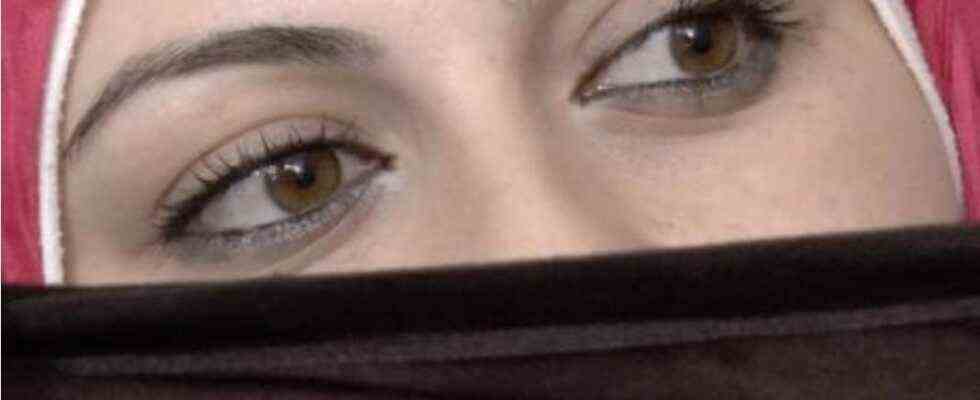“We can do it,” said Angela Merkel at the end of August 2015, when more and more refugees came to Germany via the Balkan route. Merkel wanted to motivate, so many volunteers also got involved in the district of Munich and helped to build a new home for the refugees. Others were skeptical, had questions and even fear of the strangers whose culture was so different, so new. And vice versa. The documentary filmmaker Anita Leyh (51) captured a very personal look at the individual perspectives of German and Syrian women in her film “With Different Eyes”. It will be shown this Wednesday, February 23, at 5 p.m. in the school auditorium as part of a cooperation between the cultural office and the Neubiberg grammar school. The entrance fee (five euros for adults) goes to an aid project for Syrian refugees in Lebanon and Syria.
SZ: A block of flats from GDR times, in which refugees live, children are practicing cycling, a group of women are standing on the edge and talking about Ramadan. This is how your 2016 documentary begins. What was the impetus for this?
Anita Leyh: My idea was to make a film about women who, in my opinion, found little space in the public refugee debate and in the media. I’m on the support group integration Apolda (near Weimar, note d. editor) and through him I contacted a facility in Eckolstädt near Apolda and the Syrian women there who had only been in Germany for a short time.
Filmmaker Anita Leyh.
(Photo: private)
In the film we experience four Syrian and three German women. Was everyone immediately willing to participate?
More women took part in the project of the above support group than ultimately appear in the film. Everyone was very warm, open and wanted to talk about themselves, their culture and their traditions. They wanted to show who they are. We got to know each other for two months and built up such a strong trust between German and Syrian women that a shoot was conceivable. It was very intense and emotional. We laughed and cried together. In addition, the women have learned how film works and developed it.
So how did the actual shooting go?
I didn’t dictate any content to scenes, but rather guided the women to express what they wanted to show. We thought together, what are German women interested in, what do Syrian women want to show? Topics were about appearance, clothing, what understanding women have of being beautiful. This resulted in a make-up scene. The family plays a very important role for the Syrian women, so we show them with their children at the sandpit. The women shot these two scenes without me. Religion was also important and the relationship to the headscarf, the hijab. In the film, we go into a cooking scene about Ramadan, which coincided with the time of the project. The emotional center of the film, however, is a woman’s long story about her escape story.
The filmmaker has discovered that family plays a very important role for Syrian women.
(Photo: Rental)
The film is intended to enable long-established Germans to look at refugees in their environment “with different eyes”. How do you want to stimulate this change of perspective together?
We obviously did a good job of stimulating it. In the film we see people up close. In the course of 80 film talks, the viewers were also deeply touched and said: “We didn’t know that.” The Institute for Democracy and Civil Society Jena conducted a study on our film project. Accordingly, 87 percent of viewers affirm the statement: “If more people saw films like this, they would not talk so derogatory about refugees.” According to the study, the film enables indirect contact between refugees and locals and can thus contribute to improving relations between the two.
The integration went well in Eckolstädt. That is not a matter of course. What does good integration need?
Time and good will as well as the personal commitment of people who are at the control points. In our case, these were the village mayor, the person in charge of the accommodation and some of the 500 citizens of the village who absolutely wanted to integrate the 250 refugees. But even as a German it takes decades in a village of this size to be accepted.
They often show “With other eyes” and “Männersache”, the film shot in 2017 with Syrian and German men, together. In the Neubiberg high school now only the women’s film. Why?
The women’s film is very personal, very touching. That makes a difference to the viewer. “Men’s business” is very different. It is important that there is time for the discussion that follows, which takes place after each film. Young people have an open view of other people’s differences and that every person is valuable. I’ve already had the most controversial discussions with schoolchildren and I’m curious to see how lively, thoughtful or open the subsequent discussion in Neubiberg will be.

